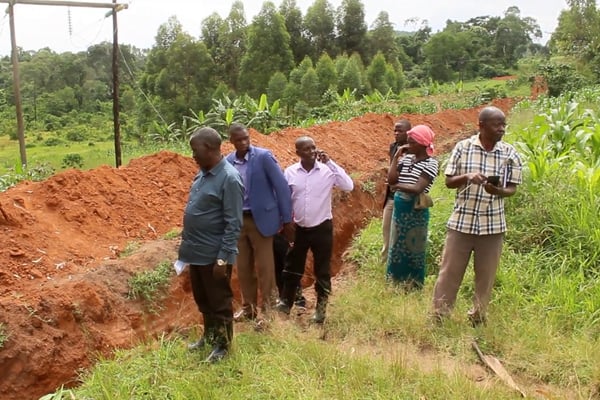Deal to enforce forest protection is welcome

David Kureeba
What you need to know:
...there is a growing reality that forest habitats need to be monitored not only by the government but also through supporting the role of CSOs, communities and other players
Uganda is among five countries in the world that signed a memorandum of understanding (MoU) for a forest partnership with the European Union (EU) at the just concluded Conference of the Parties 27 (COP27) UN Climate Change Conference in Egypt. The MoU is a partnership to preserve forests and support local communities with the aim of reversing deforestation, and enhancing climate and biodiversity protection.
The partnership comes at a time when it is most wanted because it is well placed to support an earlier developed initiative named Independent Forest Monitoring (IFM), a process by which civil societies and communities living in and around forests have the opportunity to monitor, document and report suspected illegalities in the timber sector.
IFM entails the use of an independent third party that, by agreement with state authorities, provides an assessment of legal compliance, observation and guidance on official forest law enforcement systems. (Global Witness 2005) Uganda loses forest cover at a rate of 2.6 percent per annum to illegal logging, agribusinesses such as sugarcane growing, oil palm establishments, high biomass consumption in homes and institutions of learning where massive biomass is used with limited efforts to replenishment. The forest sector has become an issue of major concern.
Research by advocacy-oriented NGOs reveals massive illegality. In Uganda, illegal timber probably accounts for the majority of the trade. Enforcing legal production of timber is the first step on the road to sustainable forest management.
Uganda’s forests are faced with continuously worsening trends through encroachment, deforestation and degradation through conversion of forestland to other land uses. Apart from timber, there are many other forest products often removed from forests illegally for both commercial and domestic use. They include charcoal, firewood, rattan, sand, clay and poles.
Illegal charcoal burning in central forest reserves (CFRs) is widespread, especially in reserves within 50kms of the main urban areas where there is high demand as almost every household in urban areas uses charcoal.
Forests contribute to national development by supporting the construction industry. Recently, there is an emerging threat of plantation farming, especially sugarcane expansion into forest land, which undermines forest protection, according to a 2020 report by the National Environment Management Authority (Nema).
The National Forest Authority (NFA) has tried to resist forest encroachment but amid socio-economic and political challenges. It is apparent that government institutions responsible for forest protection need back-up from other partners such as civil society organisations (CSOs) in order to improve forest monitoring and prevention of further degradation.
In view of the challenges facing the forestry sector, the emerging threats and complexities in enforcing forest protection by mandated agencies, there is a growing reality that forest habitats need to be monitored not only by the government but also through supporting the role of CSOs, communities and other players in fighting illegal logging to avoid environmental disasters that may be caused by climate change effects.
The IFM mechanism is proposed as a strategy to improve forest monitoring and prevent habitat degradation and encroachment.
The IFM mechanism would support forest governance, improve credibility in the forestry sector through increased transparency and independent identification of systemic failures in forest governance. This strategy is intended to coordinate CSOs’ efforts in monitoring forest protection and compliance to forest regulations. The partnership signed by EU and Uganda could also support independent forest monitoring initiative in
David Kureeba, programme officer, Forests and Biodiversity at NAPE. [email protected] Uganda.




